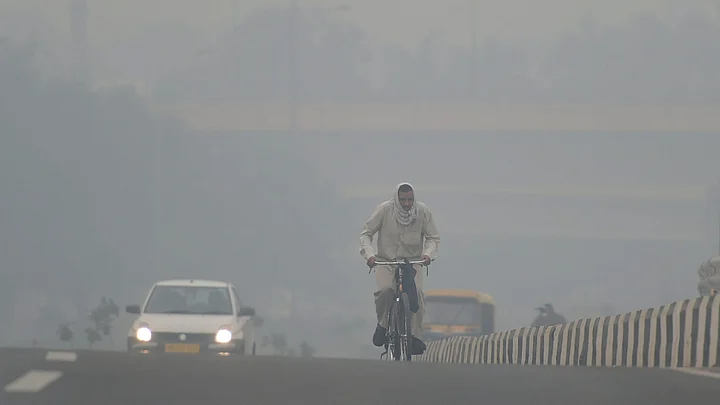(This is an excerpt from ‘India in a Warming World: Integrating Climate Change and Development’, edited by Navroz K Dubash and published by Oxford University Press. The book is due to release in November 2019.)
Climate change has been evocatively described as a ‘wicked’ problem– it has no unambiguous definition, is riven with scientific uncertainty, and proposed solutions are complicated by their embedding in social, political, and economic systems (Hulme 2009). If climate change is an environmental issue for some people, for others it is predominantly about justice and equity, and for yet others, it is largely an economic and technical challenge.
In contrast with ‘tame’ problems, even the problem definition is fraught, and, therefore, how we discuss and debate climate change is a challenge; differences in interests are further confounded by differences in interpretation.
As a result, even as evidence mounts that climate change could result in a near-unliveable ‘hothouse earth’, raising the spectre of an existential dilemma (Steffen et al. 2018), action on climate change proceeds at a glacial pace, seemingly embedded in endless and protracted debate.
Climate Change May Seem Less of a Priority, But is It?
From an Indian perspective, the challenges of productively engaging with the climate change debate are further amplified for both pragmatic and political reasons. Pragmatically, India faces enormous, and immediate, challenges of lifting its citizens out of poverty; providing access to basic needs such as health, education, energy, and water and sanitation; and addressing governance challenges of corruption and communal tensions.
By comparison, climate change appears less immediate, less certain, and therefore, less of a priority.
Politically, there is a long-standing perspective that India has contributed relatively little to causing the climate problem and should not be asked to be in the forefront of solving it. India’s contribution to the stock of emissions that has built up in the atmosphere is low, and its emissions per person are far lower than the global average.
Despite these complications, there is an overarching reason why India should, indeed, find ways of productively engaging with the climate debate: a development path that is innocent of climate change is no longer possible.
The impacts of climate change will increasingly threaten development outcomes, as the chapters in this book show comprehensively.
Also, a growing range of development decisions, including but not limited to energy, will have to account for a global context shaped by climate politics and policymaking. There are at least three ways in which this interplay between climate and development demands Indian attention.
Climate Impact – A Barrier
First, India is a country that is deeply vulnerable to climate impacts. Put more starkly, potential climate impacts are sufficiently large that they could serve as a barrier to fully achieving India’s development aspirations.
From a climate impacts perspective, the success or failure of global efforts to address climate change is deeply salient to India’s interests, particularly to those of its poorest citizens.
Second, development-focused actions and interventions are closely intertwined with climate change–related objectives.
For example, air pollution–related policies may also reduce greenhouse gas emissions and more efficient use of water can not only enhance development outcomes but also climate resilience.
Notably, these interactions may not always be positive; there may also be trade-offs between development and climate objectives. Whether positive or negative, the interactions between climate and development are widely present. Development innocent of climate change implications is not an option.
Shaping India’s Interaction With Global Community
Third, climate change is salient to India’s engagement with other countries and the global community, with implications for India’s energy economy and foreign policy. India’s energy economy is strongly shaped by global context through energy trade and technology development patterns.
Climate change is highly likely to affect energy prices across different supply sources, as well as patterns of investment in research and development, both with implications for India’s energy planning.
Moreover, climate change as a foreign policy issue is rising up in the global agenda, and India’s engagement with the issue is material to its aspirations as a rising power.
Notably, focusing on these issues of vulnerability, potential synergies between climate and development, and foreign policy helps address India’s concerns about being held responsible unfairly for addressing climate change, despite the problem being largely caused by others.
Given India’s vulnerability to climate change, India’s interests lie in promoting effective global cooperation to address climate change. With low per capita and historical emissions, India may not have a responsibility for climate, but as the third largest annual emitter it may have a responsibility to vulnerable populations to engage climate change.
This need not mean that India prioritizes climate action over development. As climate actions are not always costly to development actions but sometimes complementary, a possible path forward exists for India to engage with both climate and development productively.
Finally, India’s foreign policy aspirations as a responsible power require not just that India is part of the solution but is seen to be part of the solution.
